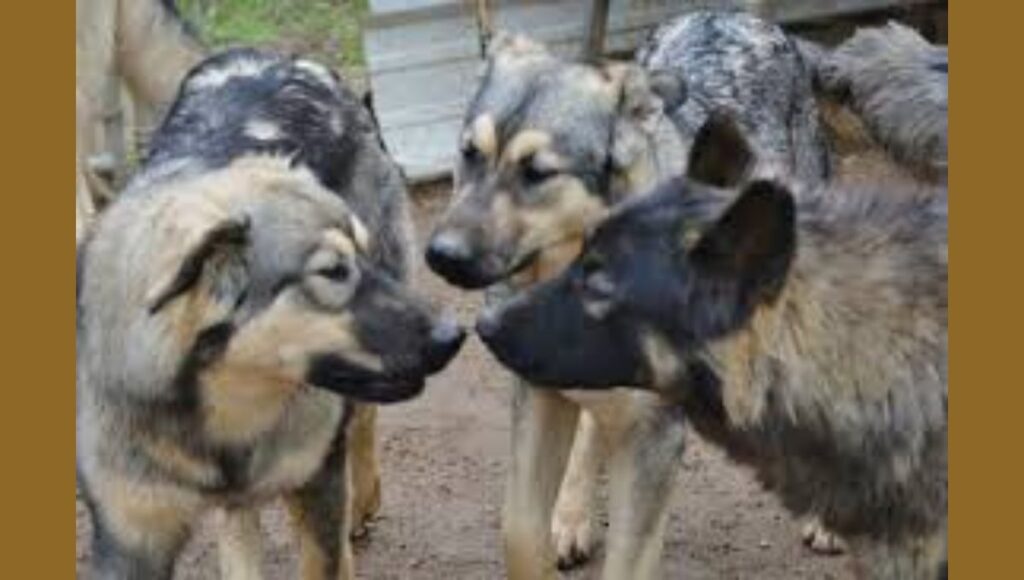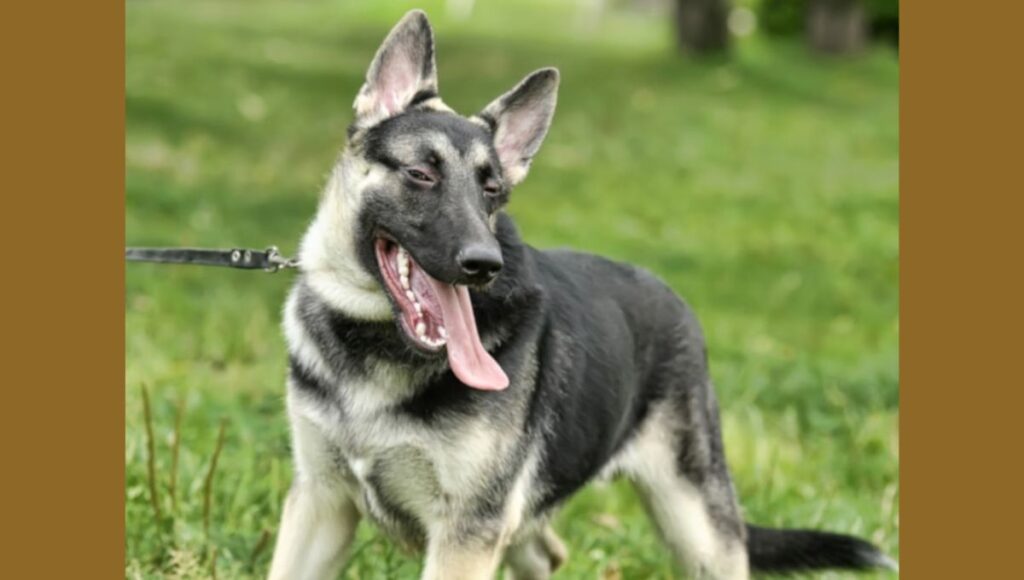American Alsatian Puppy: The Cutest Addition to Your Family!
In a world where dog breeds abound, the American Alsatian puppy stands out as an intriguing blend of beauty and intelligence. Imagine a canine companion that combines the majestic posture of a wolf with the affectionate nature of a family dog. This breed is not just another pretty face, it represents a fascinating story of dedication and passion in breeding. Developed in the late 20th century by crossing various breeds, including the German Shepherd and Alaskan Malamute, these puppies were specifically bred for temperament and appearance.
Physical Traits and Temperament

The American Alsatian puppy stands out not only for its striking appearance but also for its remarkable temperament. These pups bear a resemblance to the majestic wolf, characterized by their large size, thick fur, and imposing stature. Their broad heads and expressive eyes convey intelligence and loyalty, making them absolutely captivating companions. When considering adoption, it’s important to note that these physical traits are rarely just about looks.
In terms of temperament, American Alsatians are known for being gentle giants. They typically display an innate calmness combined with an eagerness to please their families. Socialization from an early age can help refine their naturally protective instincts into well-rounded behaviors.
Nutrition and Exercise Requirements

When it comes to raising a healthy American Alsatian puppy, balancing nutrition and exercise is paramount. These energetic dogs require a diet rich in high-quality proteins and essential fatty acids to support their rapid growth and maintain lean muscle mass. Owners should opt for reputable brands that include real meat as the first ingredient, supplemented with fruits and vegetables that provide vital vitamins and antioxidants.
In tandem with proper nutrition, consistent physical activity is crucial for mental stimulation and overall well-being. Daily walks should be complemented with interactive playtime that challenges both body and mind, think fetch or agility training tailored to your pup’s abilities.
Best Practices for New Owners

Welcoming an American Alsatian puppy into your home is an exciting journey filled with joy and responsibility. One of the best practices for new owners is to establish a structured routine from day one. Puppies thrive on predictability, so scheduling regular feeding times, potty breaks, and play sessions can help them adjust more smoothly to their new environment. This consistency not only aids in training but also strengthens the bond between you and your furry companion.
Socialization is another crucial element in raising a well-balanced American Alsatian puppy. While these pups are known for their protective instincts, early exposure to different people, environments, and other animals can prevent fearfulness down the line. Consider enrolling your puppy in puppy kindergarten classes or arranging playdates with vaccinated dogs to create positive experiences.
Importance for Development and Behavior

The development and behavior of this American Alsatian puppy is intricately linked to his early experiences, socialization, and training. From the first few weeks of life, these puppies are like sponges, soaking up information from their environment. Proper socialization during this critical period helps them learn how to navigate various situations with confidence and poise. Engaging them in a diverse range of interactions such as meeting different people or encountering various sounds can significantly shape their temperament and adaptability as they grow.
Common Health Issues in American Alsatian puppy

Common health issues in pets can often be overlooked, especially for breeds like the American Alsatian puppy. This unique breed is known for its friendly demeanor and striking appearance, but potential owners should be mindful of health conditions that may arise as these dogs grow. Hip dysplasia and elbow dysplasia are two prevalent concerns due to their size and physical structure. Regular vet check-ups and maintaining a healthy weight through balanced nutrition can help mitigate these risks.
Moreover, the American Alsatian puppy’s thick coat demands attention to skin health, particularly in regions with fluctuating climates. Skin allergies or infections can manifest if they’re not groomed properly or exposed to irritants in their environment.
Ethical Sources for American Alsatian Puppy

When considering adding this American Alsatian puppy to your family, it’s crucial to prioritize ethical sources. Responsible breeders take their commitment seriously, focusing on the health and temperament of the breed. They typically conduct genetic testing to avoid hereditary issues and ensure that each puppy is well-socialized before going to its new home. Engaging with these breeders means you’re not just acquiring a pet but partnering with someone who genuinely cares about the wellness of both the puppies and their prospective owners.
Another avenue worth exploring is breed-specific rescue organizations dedicated to American Alsatians. These rescues often manage thorough screening processes for incoming dogs, ensuring they are placed in homes where they can thrive.
Adoption vs. Buying: Making the Right Choice

When considering bringing an American Alsatian puppy into your home, the choice between adoption and buying can greatly influence your experience as a pet owner. Adoption not only offers a loving home to a dog in need but also allows you to connect with numerous rescue organizations that can guide you toward a breed-specific match. Many rescues often have American Alsatians or similar breeds that might just steal your heart.
On the other hand, purchasing from a reputable breeder guarantees specific traits, lineage verification, and possibly early socialization experiences tailored for your new puppy. This route lets potential owners curate their dog’s upbringing while ensuring responsible breeding practices are upheld.
Conclusion
American Alsatian puppy is a unique and friendly breed that combines the loyalty of a traditional working dog with the gentle nature of a family companion. Their striking appearance, along with their intelligence and trainability, makes them an excellent choice for various lifestyles, from active families to individuals seeking a devoted friend. Early socialization and consistent training are essential to help these puppies develop into well-rounded adult dogs. With proper care and attention, an American Alsatian can bring immense joy and companionship into your life.
FAQs
1. What is an American Alsatian?
The American Alsatian is a large, gentle breed known for its wolf-like appearance and friendly disposition. They were originally bred to be family companions and are excellent with children.
2. How big do American Alsatians get?
Adult American Alsatians typically weigh between 90 to 120 pounds and can stand about 24 to 32 inches tall at the shoulder, depending on their lineage and gender.
3. Are American Alsatians good family dogs?
Yes! They are known for their loyalty, intelligence, and protective nature, making them great companions for families who can provide them with love and training.
4. What kind of temperament do they have?
American Alsatians are generally calm, confident, and affectionate. They thrive on companionship and do well in homes where they receive plenty of attention and socialization.
5. How much exercise do American Alsatians need?
These dogs require regular exercise due to their size and energy levels. Daily walks, playtime, or yard activities should be part of their routine to keep them healthy and happy.
6. Do American Alsatians shed a lot?
Yes, they are moderate shedders that will require regular grooming especially during shedding seasons to manage loose fur and maintain a healthy coat.
7. What health issues should I be aware of?
Like many breeds, American Alsatians may be prone to certain health issues such as hip dysplasia or obesity. Regular vet check-ups can help monitor their health over time.
8. How can I train my American Alsatian puppy?
Positive reinforcement techniques work best with this eager-to-please breed. Consistent training sessions combined with socialization will help your puppy grow into a well-behaved adult dog.







